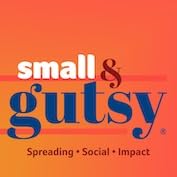Loss is something we all experience and I think if you ask the average person about loss, you may get an answer about missing someone who was very special to them, and is no longer here, but loss can take on so much more meaning; it can be loss of an opportunity, loss of an existing relationship, because that relationship has shifted or no longer exists in its original construct; it can be loss of abilities or faculties, Loss simply means no longer having something or having less of it than before; Oftentimes, we need to process that loss and hopefully with time, the pain or the sadness lessens and sometimes, the process of a loss turns into action to prevent further losses. When you meet my guest today, loss took on an incredible meaning in his life; potential and actual loss of nature and natural habitats that forced indigenous people and animals to find other ways to survive, loss of preserving indigenous peoples’ villages, loss of clean water for some, loss of environments that had been functioning well for generations, but due to deforestation and frankly greed or ignorance, those places are no longer what they once had been.
Imagine being a little boy where your playground is the curiosity of cultures and environments and where your day’s goal is to explore every indigenous reptile, spider, and furry animal that comes across your path. My guest today was fortunate enough to have a mother as a travel agent planning exotic vacations, and a father who had a huge number of airline miles, giving my guest and his sister the opportunity to travel to less known places that set the stage for his future professional and, I think, personal journey.
Some people are driven by threats - my guest is driven by the threat of loss of the most amazing ecosystems in our global environment; initially wishing to raise awareness about tropical rainforests by publishing his book on line, he established Mongabay in 1999 - the name is also an iteration of a place he loves in Madagascar which he can share with you in a moment. Mongabay has been going strong since its inception in 1999 as a vehicle to raise awareness of and interest in wildlife and wild lands; 25 years later, it has continued to gather momentum and has evolved from a website hosting his book, specific to rainforests with the aim of raising awareness to spark action in preserving these amazing ecosystems, to a comprehensive platform covering a wide range of environmental topics far beyond tropical forests. Mongabay is a nonprofit media platform with more than 90 staff across five bureaus and a network of approximately 1,000 correspondents in 80 countries, producing original reporting in five languages, and is read by millions of people a month. Mongabay pursues stories ranging from conventional news articles to deeply-reported investigative projects. One key goal of Mongabay is to increase transparency through targeted journalism which then influences change by driving greater accountability and supporting an enabling environment for a wide range of actors, from nongovernmental organizations to local communities to green entrepreneurs to take action.
I’d call this driven, initially driven by loss and now driven by the impact Mongabay has surely had. Mongabay draws its inspiration from a global moral code and truly honors nature. Words cannot express my personal awe for Rhett Butler, founder of Mongabay -
Rhett and his global team have forced the revision of laws to protect these environments and manage the global greed for resources that frankly belong to the indigenous people who could then have a sustainable existence by benefitting from these resources.
For more information, please check out their website: www.mongabay.org
 Aug 1 202540 m
Aug 1 202540 m 47 m
47 m Jun 10 202556 m
Jun 10 202556 m 41 m
41 m 48 m
48 m Mar 18 202547 m
Mar 18 202547 m Mar 4 20251 h y 2 m
Mar 4 20251 h y 2 m 53 m
53 m
